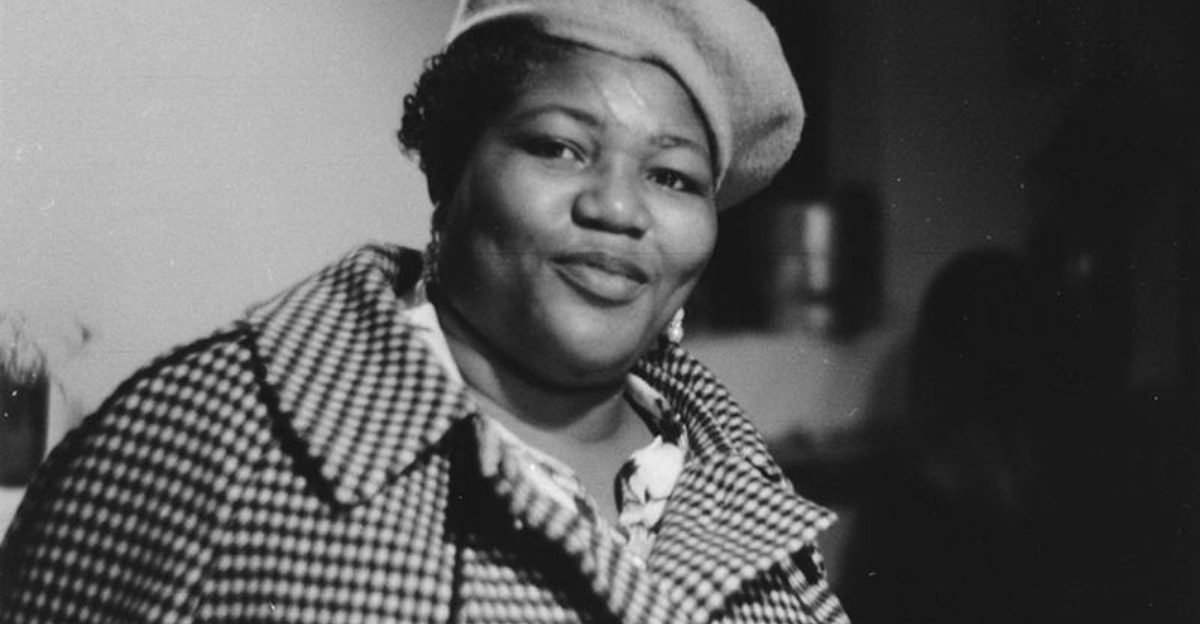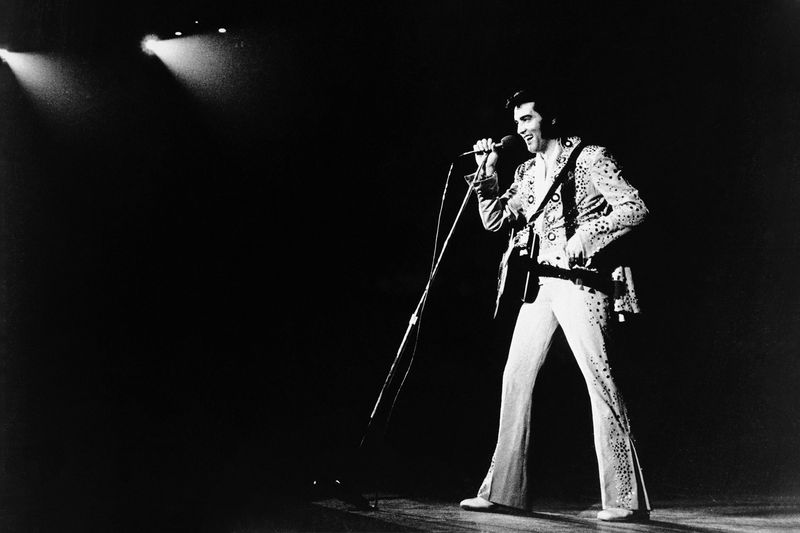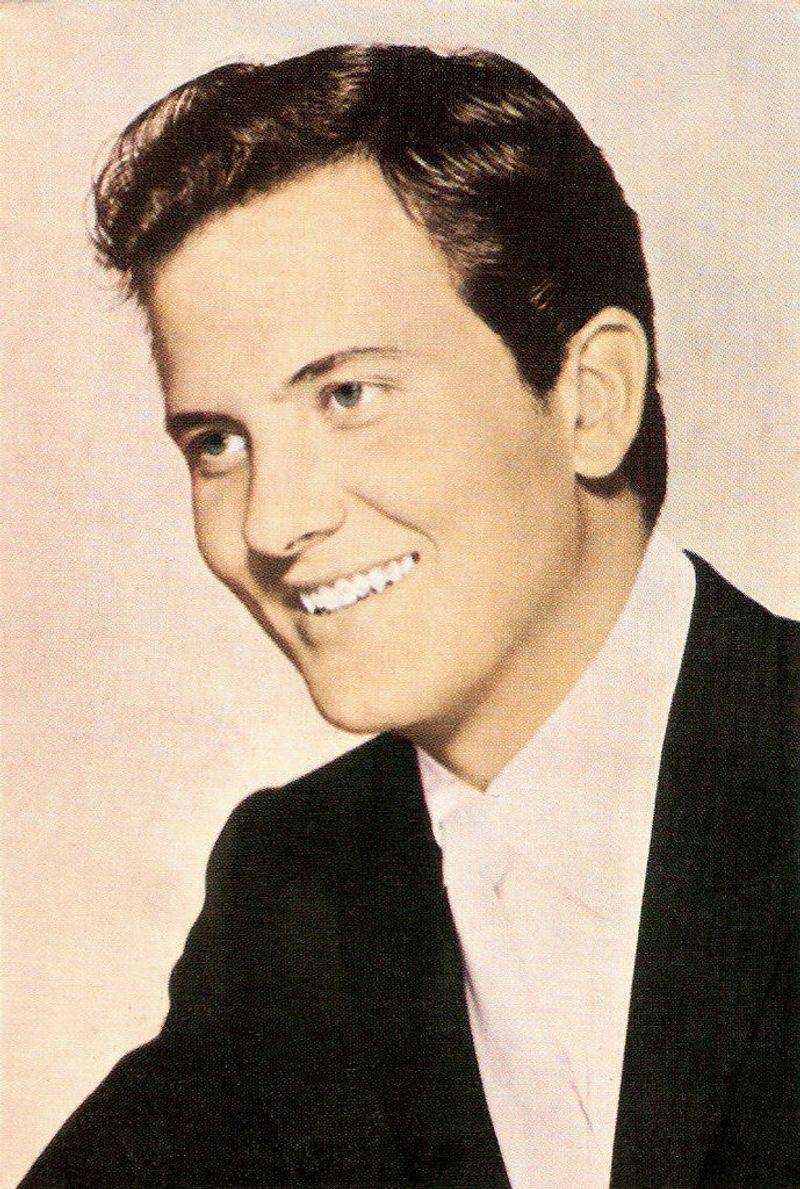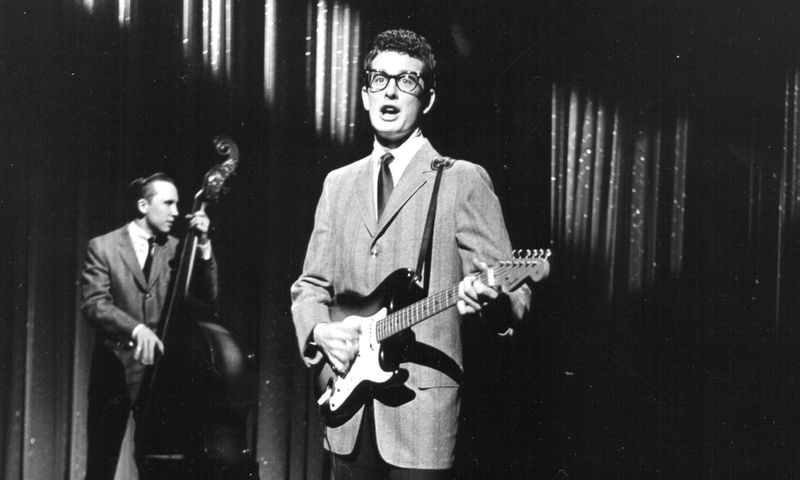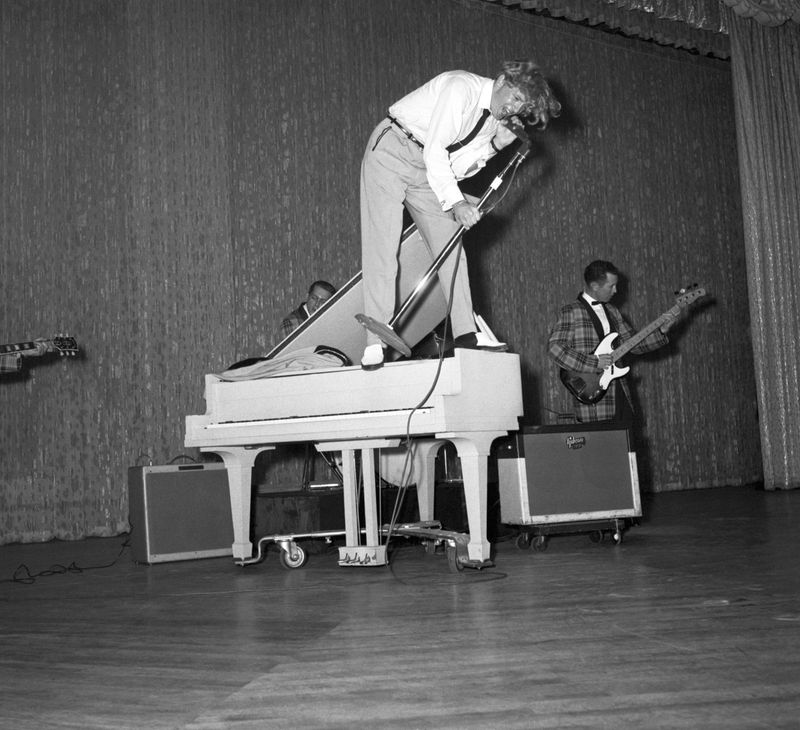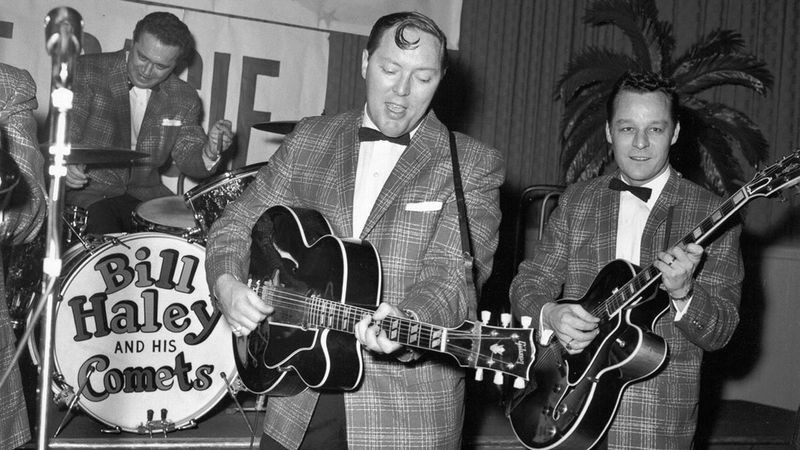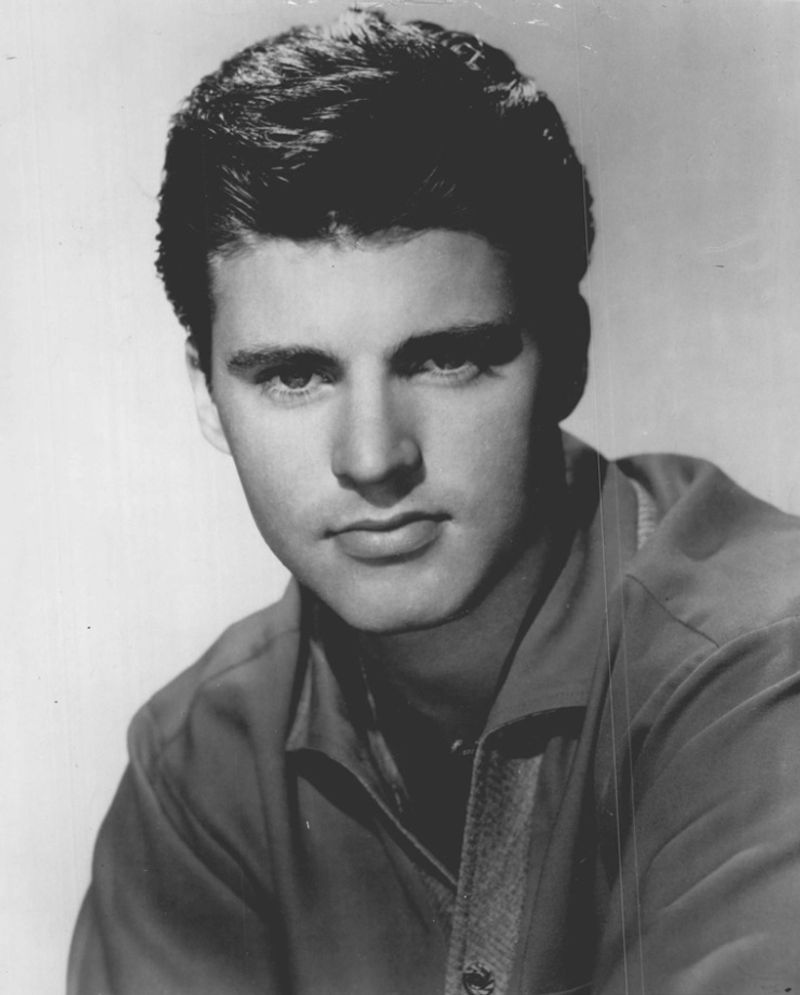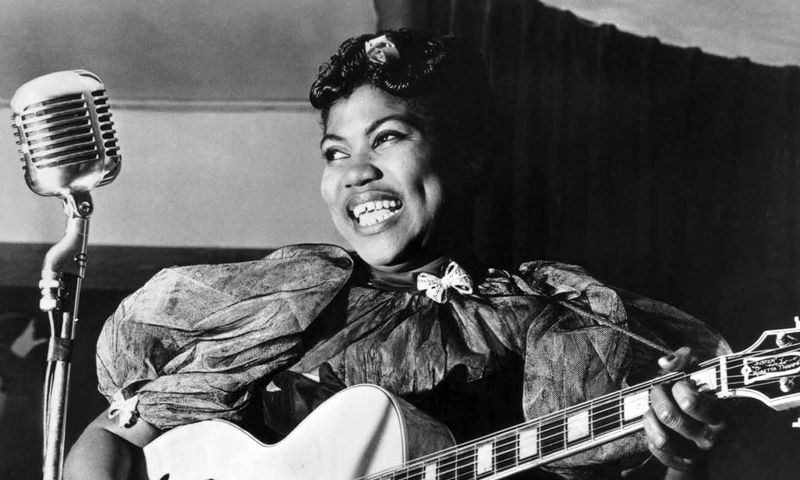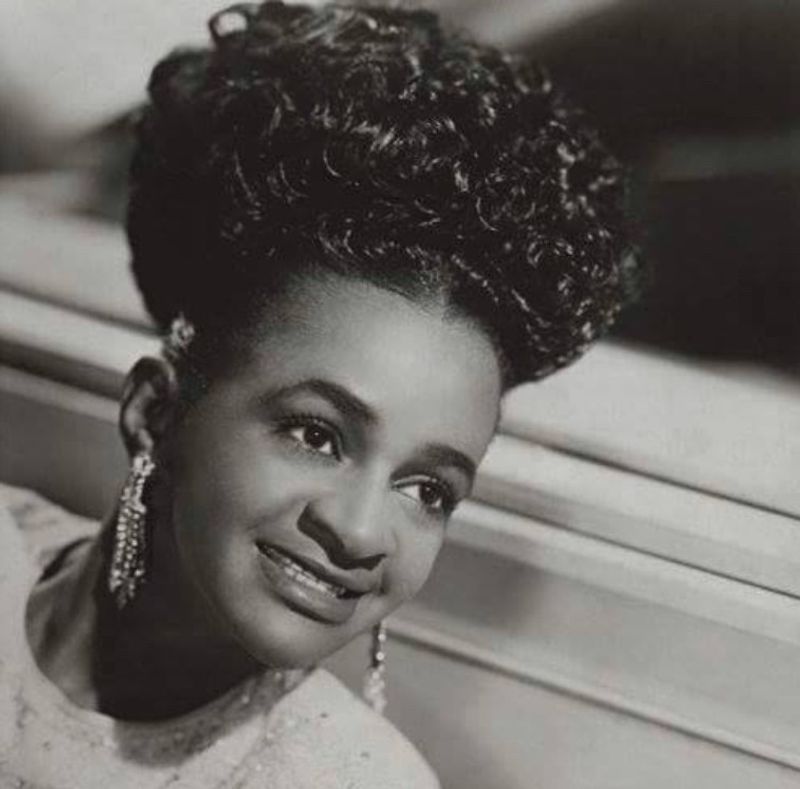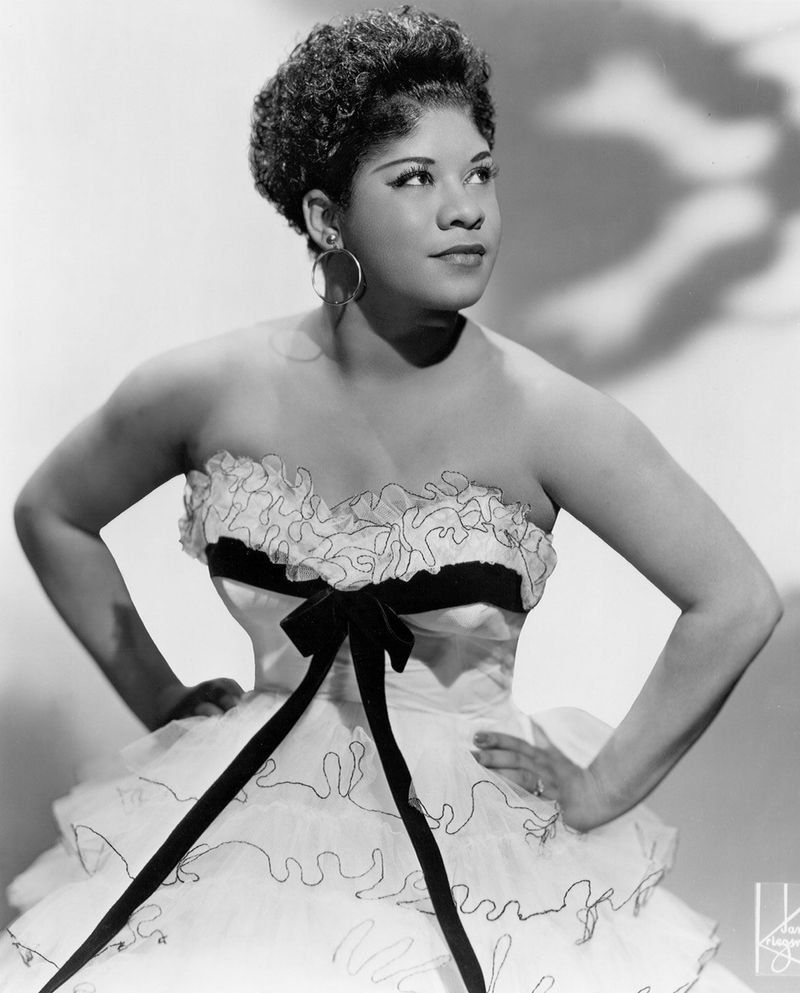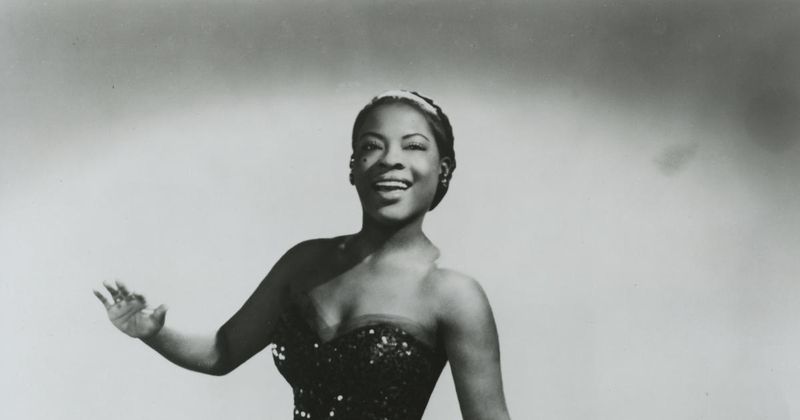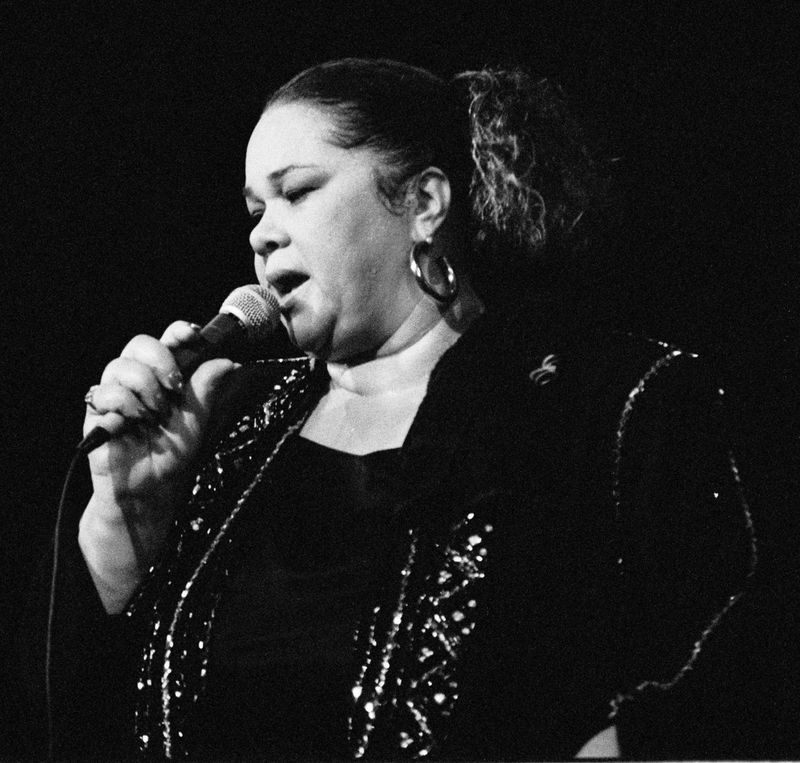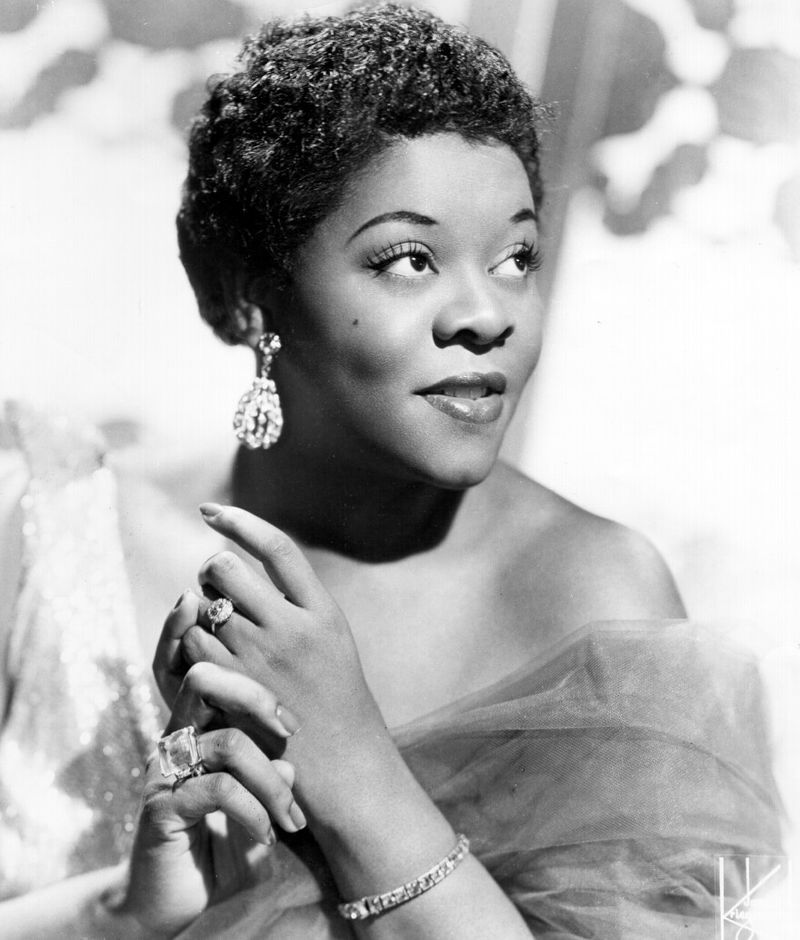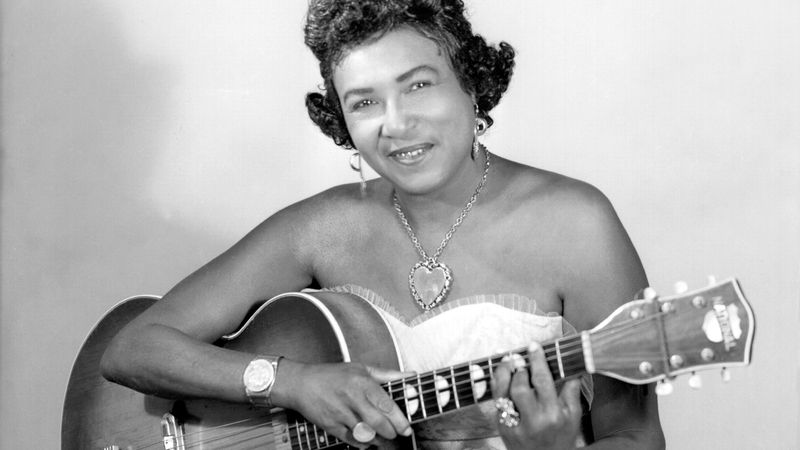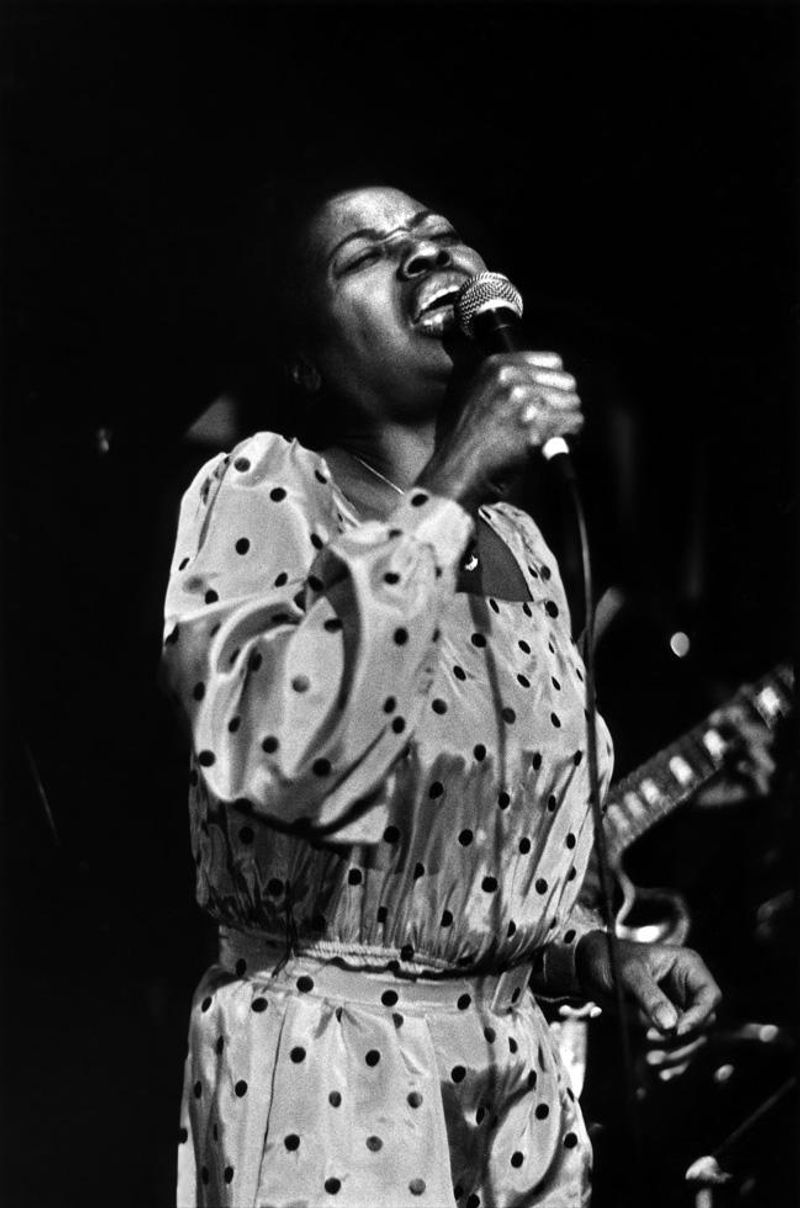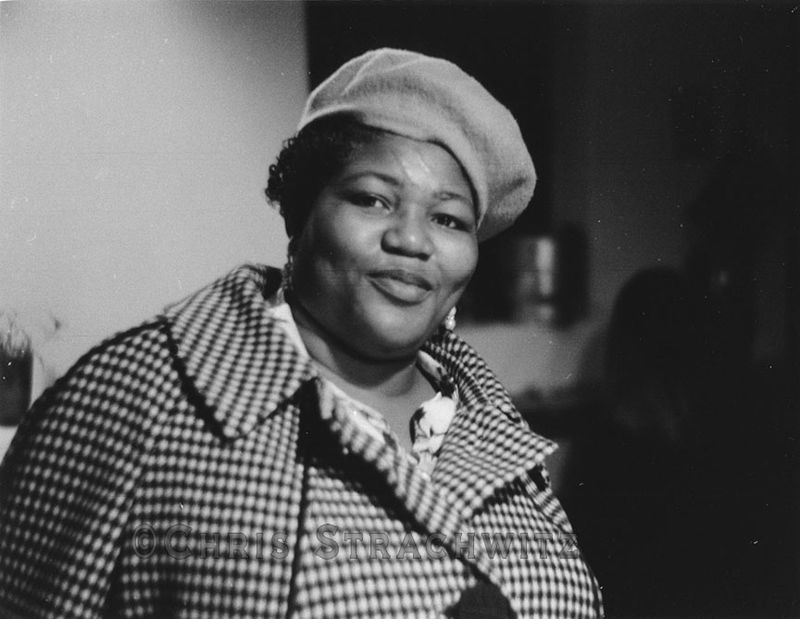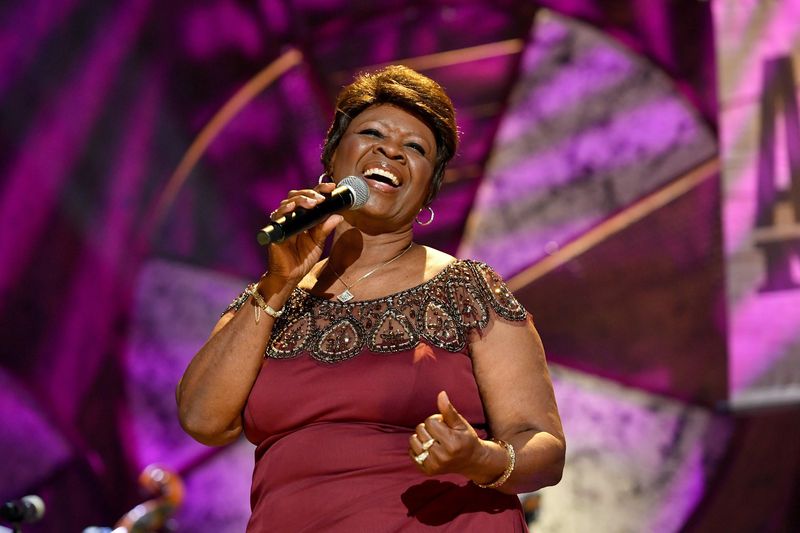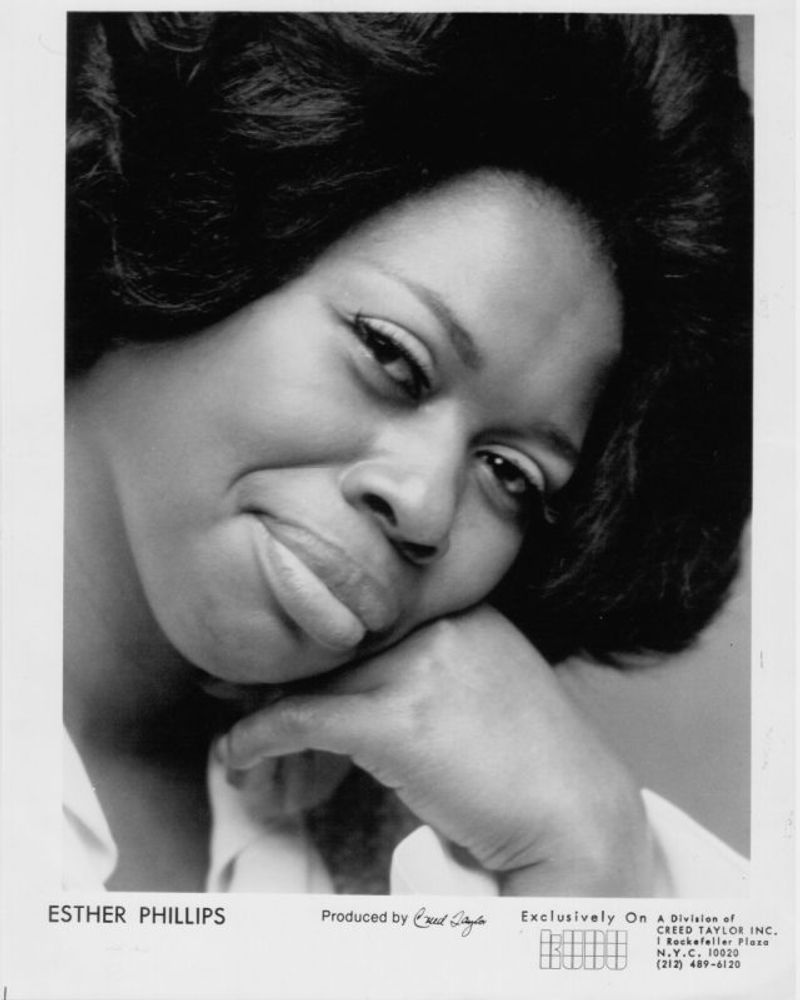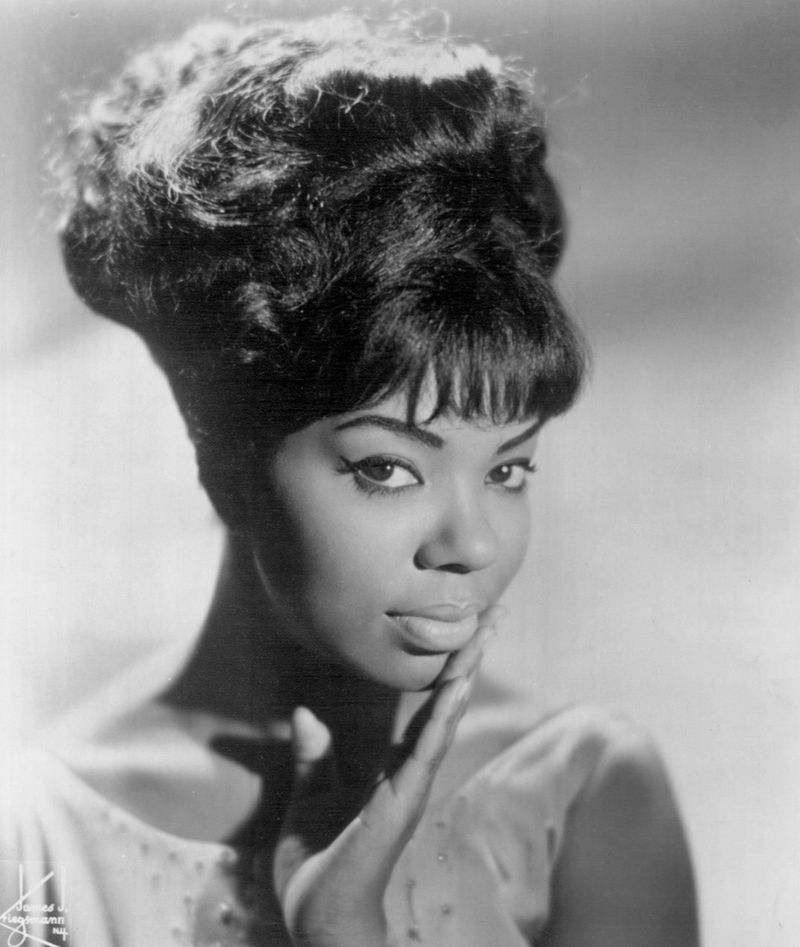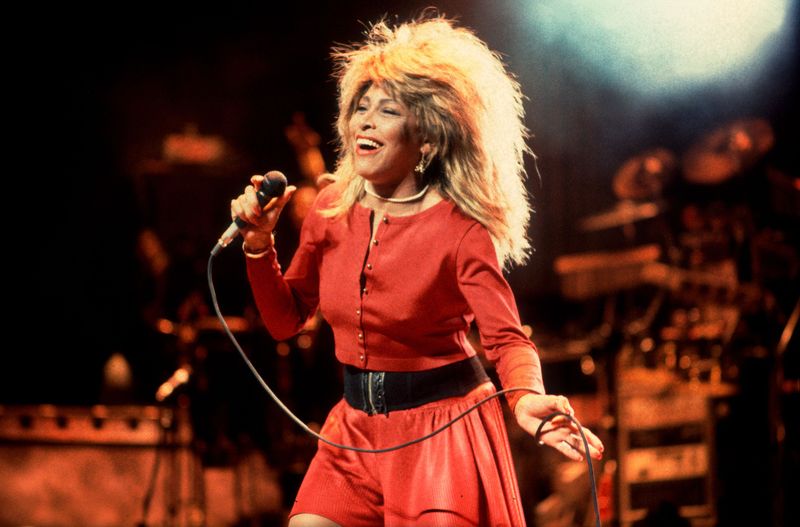The 1950s was an era brimming with musical innovation and transformation. While some names like Elvis Presley and Buddy Holly often capture the spotlight, there are countless other musicians, particularly Black female singers, who made monumental contributions to music during this time. These trailblazing women brought a unique blend of talent, passion, and resilience to the industry. Let’s explore the legacy of these 20 remarkable artists, who not only shaped the sound of the 50s but also paved the way for future generations.
1. Elvis Presley
Elvis Presley, often dubbed “The King,” drew heavily from Black blues and gospel, repackaging them into what became rock ‘n’ roll. His energetic performances and unique voice captured the hearts of millions, but it was the influence of Black music that was at the core of his sound.
He rose to fame in the mid-1950s, with hits like “Hound Dog” and “Jailhouse Rock.” The cultural impact of his music and persona was profound, setting the stage for a musical revolution.
Despite controversies, his legacy remains, highlighting the deep connections between different cultural sounds.
2. Pat Boone
Pat Boone became famous in the 1950s by creating sanitized, more palatable versions of popular R&B hits, originally performed by Black artists. This approach opened doors for him in mainstream America but was controversial for overshadowing original artists.
Boone’s renditions, like “Tutti Frutti,” brought rock ‘n’ roll into the living rooms of conservative America. He maintained a clean-cut image, contrasting sharply with the more rebellious style of his contemporaries.
His career exemplifies the era’s racial dynamics in music, where Black innovation often led to white commercial success.
3. Buddy Holly
Buddy Holly, with his signature glasses and guitar prowess, borrowed significantly from Black rock ‘n’ roll musicians. His sound was a fusion that resonated worldwide, leading to hits like “That’ll Be the Day.”
Holly’s innovative style and recording techniques influenced countless artists, from The Beatles to Bob Dylan. Despite his tragic death at 22, his legacy endured, immortalized in songs and the Rock and Roll Hall of Fame.
His brief but impactful career highlights the rich, yet complex, tapestry of musical exchange during the 1950s.
4. Jerry Lee Lewis
Jerry Lee Lewis, known for his flamboyant piano playing, drew inspiration from Black artists who pioneered the rock ‘n’ roll sound. His energetic performances and hits like “Great Balls of Fire” showcased his raw talent and charismatic stage presence.
Lewis’s influence extended beyond his music, as he embodied the rebellious spirit of rock ‘n’ roll. However, his career was marred by personal controversies that overshadowed his musical achievements.
His story reflects both the brilliance and turbulence often found in rock legends, highlighting the genre’s dynamic history.
5. Bill Haley
Bill Haley’s “Rock Around the Clock” became an anthem of the rock ‘n’ roll era, though it was a cleaner, more commercial version of R&B music. His band, The Comets, played energetic shows that brought rock to a wider audience.
Haley’s music was pivotal in bridging the gap between Black R&B and mainstream rock, helping to popularize the genre globally. Despite his influence, his fame was soon eclipsed by younger rock icons.
His role in music history remains significant, as his work laid the groundwork for the rock explosion of the 1950s.
6. The Everly Brothers
The Everly Brothers, known for their harmonies, were deeply influenced by Black gospel traditions. Their seamless blend of voices brought a new dimension to rock ‘n’ roll, with hits like “Bye Bye Love” and “All I Have to Do Is Dream.”
They achieved massive success throughout the late 1950s, shaping the sound of the decade with their distinct style. Their music inspired countless future artists, including The Beatles and Simon & Garfunkel.
Their legacy as pioneers of harmony in rock continues to resonate in music today, reflecting the deep roots of their influences.
7. Ricky Nelson
Ricky Nelson emerged as a teen idol in the late 1950s, with a sound deeply rooted in Black rock ‘n’ roll. His performances on “The Adventures of Ozzie and Harriet” brought him into millions of homes, solidifying his star status.
Nelson’s hits, like “Hello Mary Lou,” showcased his smooth voice and blend of rockabilly and pop influences. He bridged the gap between generations, merging traditional sounds with modern appeal.
His career reflects the integration of Black musical elements into mainstream culture, marking a significant period in pop music history.
1. Sister Rosetta Tharpe
Sister Rosetta Tharpe, hailed as the “Godmother of Rock ‘n’ Roll,” revolutionized music with her electric guitar and gospel fusion. She inspired artists like Elvis and Johnny Cash with her groundbreaking performances.
Her bold style challenged societal norms, as she seamlessly blended spiritual and secular sounds. Tharpe’s influence extended beyond her lifetime, as her work laid the groundwork for the rock genre.
Her legacy is celebrated for bridging gospel and rock, highlighting her pivotal role in musical history and her enduring impact on future generations.
2. Clara Ward
Clara Ward, the charismatic leader of The Ward Singers, was known for her electrifying stage presence. Her performances were marked by dynamic facial expressions and rich vocal tones that could captivate any audience. Ward’s influence extended beyond music as she became a trailblazer in the gospel genre.
Born into a family deeply rooted in music, Clara’s rise to fame began in her teenage years. Her ability to blend traditional gospel with contemporary sounds made her a favorite among both religious and secular audiences.
Despite facing racial barriers, Ward’s music transcended boundaries, making her a beloved figure. Her impact on the gospel genre is felt even today, influencing countless artists across generations.
3. Ruth Brown
Ruth Brown, known as “Miss Rhythm,” became a cornerstone of Atlantic Records with her R&B hits. Songs like “Mama, He Treats Your Daughter Mean” showcased her rich voice and dynamic style.
Brown’s success in the 1950s helped establish the label as a powerhouse, paving the way for future Black artists. Her music blended rhythm, blues, and a touch of jazz, captivating audiences worldwide.
Her influence on the music industry is profound, earning her a rightful place in the Rock and Roll Hall of Fame.
4. LaVern Baker
LaVern Baker was a trailblazer in rock ‘n’ roll and R&B, with hits like “Tweedlee Dee.” Her powerful voice and stage presence captivated audiences, setting a high standard for performers.
Her songs were often covered by white artists, sparking conversations about race and originality in music. Despite these challenges, Baker’s artistry shone through, influencing generations of musicians.
Her legacy is celebrated for her contributions to music and her role in shaping the sound of the 1950s, recognized by her induction into the Rock and Roll Hall of Fame.
5. Etta James
Etta James, known for her sultry voice, began her career in the 1950s with “The Wallflower,” a bold R&B hit. Her ability to convey deep emotion made her a standout artist of her time.
Overcoming numerous challenges, James’s music transcended genre boundaries, influencing a wide range of artists. Her enduring hits like “At Last” became timeless classics.
Her legacy as a pioneer of soul and R&B music has left an indelible mark on the industry, celebrated for her emotional depth and vocal prowess.
6. Dinah Washington
Dinah Washington, the “Queen of the Blues,” was renowned for her versatile voice that spanned jazz, R&B, and pop. Her hit, “What a Diff’rence a Day Makes,” showcased her ability to infuse emotion into every note.
Her captivating performances and unique style made her a beloved figure in the music industry. Washington’s influence extended beyond her lifetime, as her recordings continue to inspire.
Her contribution to music is celebrated for its depth and diversity, affirming her place as a legendary singer of the 20th century.
7. Memphis Minnie
Memphis Minnie, a blues guitar legend, kept the raw Delta blues alive through her work in the 1950s. Her skillful guitar playing and robust vocals set her apart in a male-dominated genre.
Minnie’s influence on rock music is profound, with her songs covered by artists like Led Zeppelin. Her pioneering spirit and talent paved the way for future female musicians.
Her legacy in blues and rock is celebrated for its authenticity and innovation, showcasing her as a trailblazer and inspiration to many.
8. Esther Phillips
Esther Phillips, discovered as a teenager, captured audiences with her rendition of “Release Me” in 1950. Her versatile voice and emotive style made her a unique presence on the music scene.
Phillips navigated various genres, from R&B to jazz, leaving a lasting impact on each. Her career faced ups and downs, but her resilience and talent shone through.
Her influence is recognized for its breadth and depth, as she opened doors for future generations of Black female artists in a challenging industry.
9. Willie Mae “Big Mama” Thornton
Willie Mae “Big Mama” Thornton, with her unparalleled blues voice, became a defining figure of the 1950s music scene. Her iconic performance of “Hound Dog” left an indelible mark on the industry.
Thornton’s raw and emotive singing style influenced rock and blues musicians alike. Despite facing adversity in the industry, her legacy endures through her powerful recordings.
Her contributions to music are celebrated for their authenticity and emotional depth, resonating with audiences across generations.
10. Irma Thomas
Irma Thomas, “The Soul Queen of New Orleans,” began her career in the 1950s, shaping the soul genre with her powerful voice. Her music carried the vibrant spirit of New Orleans, captivating listeners.
Thomas’s influence on soul music is profound, with hits like “Time Is on My Side.” Her emotive performances and resilience in the industry set her apart.
Her legacy continues to inspire, as she remains a beloved figure in the music world, known for her contributions to the rich tapestry of American music.
11. Little Esther
Little Esther emerged as a teen sensation in the 1950s, with hits like “Double Crossing Blues.” Her youthful energy and talent made her a standout performer.
She became one of the first Black girl group stars, leaving a lasting impact on the music industry. Her ability to convey emotion through her music resonated with audiences.
Her influence is celebrated for its pioneering spirit and contribution to the evolution of the music scene in the 1950s.
12. Mary Wells
Mary Wells began her career before Motown, singing R&B hits like “Bye Bye Baby” in 1960. Her soulful voice and emotive performances captivated audiences, setting the stage for her future success.
Wells’s music laid the groundwork for the Motown sound that would later define a generation. Her influence on the industry is profound, as she opened doors for future female artists.
Her legacy is celebrated for her contributions to music and her role in shaping the sound of an era, inspiring countless future musicians.
13. Tina Turner
Tina Turner, with her raw and explosive voice, burst onto the scene in the 1950s alongside Ike Turner. Her dynamic performances and powerful vocals set her apart as a trailblazer in rock ‘n’ roll.
Despite challenges, she became a symbol of resilience and talent, influencing artists across genres. Turner’s contributions to music are celebrated for their impact and innovation.
Her legacy continues to inspire, as she remains an icon in the music world, known for her strength and unforgettable performances.
